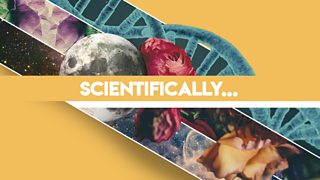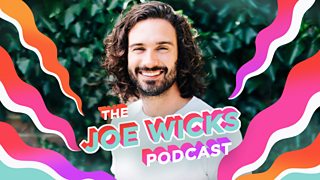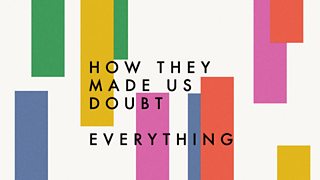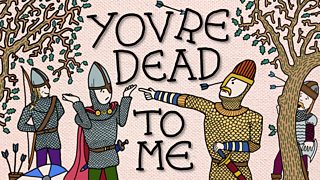Five fascinating science documentaries for the time of coronavirus
Now that the COVID-19 updates are a standard part of our daily lives, it might be a good time find something new to insert into our brains. Inspired by our Scientifically… collection, here are five ways for you to escape the world of self-isolation and learn something new.
-
![]()
Discover Scientifically... on Βι¶ΉΤΌΕΔ Radio 4
The home of the best science programmes from Βι¶ΉΤΌΕΔ Radio 4 introduced by Dr. Alex Lathbridge.
1. Engineer your body
Since modifying his hearing aids to create a “new sense”, Frank Swain has been trying to give himself the ability to “hear wifi.”
Around the globe, communities of body hackers are trying to re-engineer themselves to enhance themselves and push past the barrier of human limitation.
He’s not alone in this act of rebellious bioengineering. Around the globe, communities of body hackers are trying to re-engineer themselves to enhance themselves and push past the barrier of human limitation.
There are as many reasons to modify the body as there are people doing it. Dana Lewis, a 28-year old biohacker, has developed an “artificial pancreas” able to automatically regulate her insulin levels to manage her Type 1 diabetes.
Without passwords and encryption, implanted medical digital devices could pose a security risk. Neural implants are used to treat conditions like Parkinson’s and OCD but depending on their location on the brain, neuroscientist Anders Sandberg believes that criminal hackers could use these to change someone’s behaviour or even paralyse them.
Listen to Frank’s adventures into body-hacking in Meet the Cyborgs.
2. Track a virus
By its very design, the internet categorises us and feeds us the information that the algorithms assume that we want. This makes it easy for all us to feed into the spread of the “misinformation virus” – which, once released into a digital sea of billions of messages, cannot be contained.
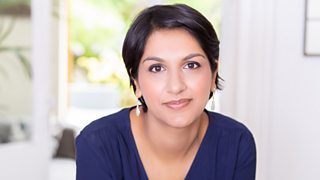
In an age where fake science spreads faster than the truth, psychologist Dr Sander van der Linden at Cambridge University believes that how we choose to share information often boiled down to these 3 questions: Do I like this person? Do I know this person? Do they look credible?
The spread is not always by accident. Manipulation by misinformation has become a new weapon in the digital age. Be it inauthentic Instagram accounts or bots trolling on Twitter – military regimes and political parties are gaming the algorithms to sow discord targeted at specific groups. The aim of information warfare isn’t to change our minds but rather to confirm what we already believe is true and make us even angrier about it.
Join science journalist and writer Angela Saini on her quest to find out why bad ideas spread in The Misinformation Virus.
3. Explore Mars
Our red planetary neighbour has been long been a source of mystery and inspiration for scientists and storytellers.
In 1971, Mariner 9 was the first spacecraft to orbit Mars. After months of enormous global dust storms, the probe was able to send back images which, for the time, were incredibly detailed. Towering out of the images was the solar system’s greatest volcano – Olympus Mons. More than twice the height of Everest, this pile of lava stretches 20km tall and over 600km across.
It’s not the only feature to capture the imagination. Billions of years ago, gigantic volumes of water burst forth like a hundred Amazon rivers exploding at once and created the giant canyon known as Ares Valles. Carving almost seven kilometres into the planet’s crust, the Vallis Maneris is another canyon – this one stretching over 4000 kilometres.
Features like these suggest that Mars might be more like planet Earth than we think. Evidence of past water on Mars suggests that – theoretically speaking – the right environments could have been home to life on the planet.
Explore the red planet in A Trip around Mars with Kevin Fong.

4. Connect with your bed
As with most other people, I spend a lot of time in bed. Writing in bed. Sleeping in bed. Aimlessly wondering about the history of the bed…in bed.
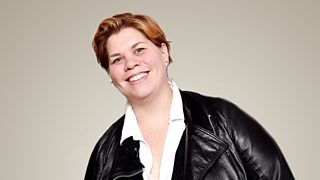
For thousands of years, where we sleep has been an indicator of status. In the Middle Ages, “beds of state” were the centre of political life for monarchs. Favoured courtiers in the court of Louis XIV were present at the waking of the king and took part in his morning rituals. Famously, Marie Antoinette was surprised to find out that there was an audience for the consummation of her marriage to Louis XVI to ensure that the marriage was legal (providing instructions for the event, making full use of euphemisms concerning “keys and locks”).
It’s not just where we sleep but also how we sleep that has changed – everything from our nightly rituals to our sleep periods. Follow Katy Brand as she hears from public historian Greg Jenner, Prof Sasha Handley, and other experts in Bed: The Origin of Stuff.
5. Get to the root of addiction
Addiction is as old as we are. Deities of intoxication and excess were worshipped by ancient civilisations and by the 1750s, taverns and cheap gin were ubiquitous in the UK.
Though more and more people are able to quit smoking cigarettes nowadays, addiction to alcohol and other drugs remains a problem. Many of the addictions that people fight today have been caused by our attempts to fight addictions in the past. Morphine was intended to treat alcohol dependence, cocaine to treat morphine addiction and subsequently, heroin was developed to treat the increasing addiction to morphine.
One of the greatest mysteries of addiction is why some who take a drug become addicted whiles others do not. There is a complex web of genetic, medical and social factors that drives people into addiction and keeps them there. We know that this chronic disease hijacks parts of the brain used to self-regulate, further pushing people into taking drugs.
Brain scans show that repeated use of drugs reduces the number of receptors available to be stimulated in the pleasure centres of the brain. This leads to higher and higher doses being taken to get the same hit and making non-drug rewards less and less exciting.
Join Sally Marlow down the rabbit hole in The Science of Addiction.
More from Βι¶ΉΤΌΕΔ Radio 4...
-
![]()
Scientifically...
The home of the best science programmes from Βι¶ΉΤΌΕΔ Radio 4.
-
![]()
The Joe Wicks Podcast
Joe Wicks asks some of his inspiring mates about their secret to physical and mental happiness.
-
![]()
How They Made Us Doubt Everything
How some of the world's most powerful interests made us doubt the connection between smoking and cancer, and then how the same tactics were used to make us doubt climate change.
-
![]()
You're Dead To Me
The history podcast for people who don't like history... and those who do with Greg Jenner.
